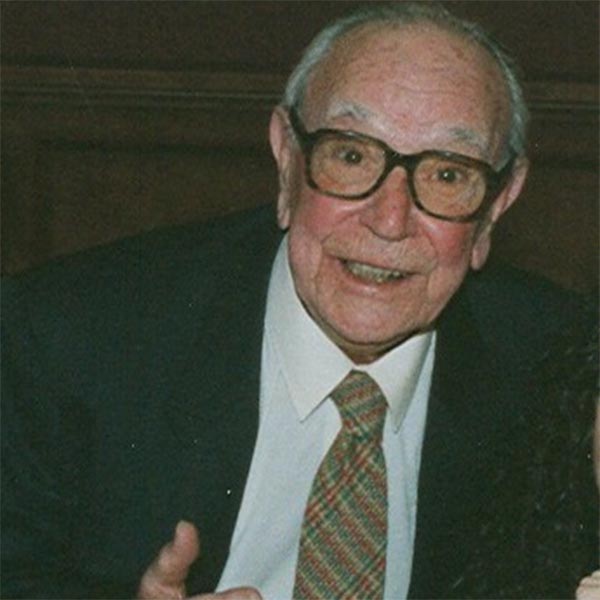Victoriano Crémer
Chairman 1993
Victoriano Crémer
Chairman 1993
Photo: Memoria Histórica del Festival Nacional de Exaltación del Botillo de Bembibre
Victoriano Crémer Alonso was mantenedor in 1993. Poet and writer, he lived almost all his life in León.
During his youth, he worked as a newspaper salesman, an apothecary boy, a printer, an announcer and even an underground journalist. He published his first poem at the age of 16 in the weekly Crónica de León.
He escaped from death several times during the Civil War, but he passed through the concentration camp of San Marcos, in León.
He was co-founder of Espadaña magazine along with Antonio González de Lama, Luis López Santos, José Castro Ovejero, Luis López Anglada, Antonio Pereira and also the poet Eugenio G. de Nora. The magazine was a means of expression for many authors of the post-war uprooted poetry.
His work ranges from existentialism to social concerns, moving between the claim against injustice and the desire for solidarity. He also wrote narrative, always with social overtones. Some of his Works are Libro de Caín (1958) and Historias de Chu-Ma-Chuco (1970).
Photo: Memoria Histórica del Festival Nacional de Exaltación del Botillo de Bembibre
Victoriano Crémer Alonso was mantenedor in 1993. Poet and writer, he lived almost all his life in León.
During his youth, he worked as a newspaper salesman, an apothecary boy, a printer, an announcer and even an underground journalist. He published his first poem at the age of 16 in the weekly Crónica de León.
He escaped from death several times during the Civil War, but he passed through the concentration camp of San Marcos, in León.
He was co-founder of Espadaña magazine along with Antonio González de Lama, Luis López Santos, José Castro Ovejero, Luis López Anglada, Antonio Pereira and also the poet Eugenio G. de Nora. The magazine was a means of expression for many authors of the post-war uprooted poetry.
His work ranges from existentialism to social concerns, moving between the claim against injustice and the desire for solidarity. He also wrote narrative, always with social overtones. Some of his Works are Libro de Caín (1958) and Historias de Chu-Ma-Chuco (1970).
